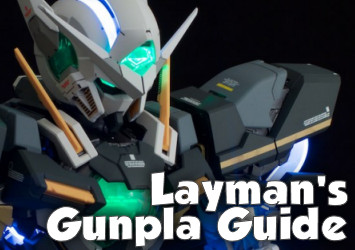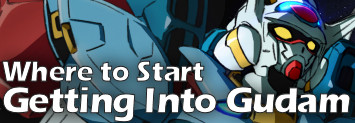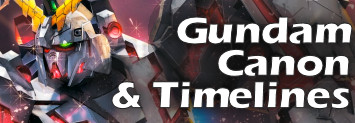My thoughts on Fullmetal Alchemist chapter 108 (THE END):

One hundred and eight chapters of Hiromu Arakawa's fantasy-action-drama. Nine years of it. Granted, I haven't been following it for nine years (more like six), but I feel like I've invested quite a bit of time reading, discussing, debating, arguing, ranting, raving, theorizing, fankwanking, reviewing, and spriting the characters, storylines, and mysteries of this epic tale of two brothers looking to get back what they lost in a terrible mistake, guided by the principal they had so tragically ignored.
So, how then, after all this time, does Hiromu Arakawa wrap up this nine year endeavor? With pomp and extravagance? With bitter tragedy? With a disturbing mind screw? Rocks fall, everyone dies? What could possibly give the thousands of fans a satisfying conclusion to this story of both dispair and hope?
All right, okay, I'm stalling. The question is, did I like the final chapter of Fullmetal Alchemist?
Yes. Yes, I did. A lot more than I expected.
But first, let's look at some of my predictions and how close they came to coming true:
Prediction #1: Hohenheim will sacrifice himself for his sons. Hm, no this one didn't happen. He offered himself up as a toll to bring back Alphonse, but Edward rejected the idea and nothing more was said of it (I expected him to do it anyway). Hoho Papa did finally pass, with a smile on his face at the grave of his wife. I guess he used the last of his strength getting from Central to Risembool. Guy's a quick walker. Anyway, I got Wolfwood vibes from him, because he died thinking that he actually wanted to live now.
Prediction #2: Greed will die. This came true, but not quite in the way I thought. I mean, Father did reabsorb Greed, but then Greed used it against him for a moment, before Father killed him. Ling lives on and apparently becomes Emperor of Xing somehow (that would make for an interesting spinoff, even though I don't like Ling very much). I'm still a little miffed at Greed just wanting friends the whole time. That was lame. But at least Greed went out fighting. Sorta.
Prediction #3: Alchemy will change. Well, it doesn't seem to have. Though we don't see anyone use alchemy after Edward uses his Gate as a toll, it is implied that Roy will regain his sight via the use of a Philosopher's Stone. I would think that Amestris would start adopting rentanjutsu from that point on, because of the pitfalls of the Truth, but I guess as long as you aren't committing the taboo of human transmutation, you don't have to worry.
Prediction #4: Scar will probably survive. This one I got right, as after collapsing, Scar is retrieved by Olivier Armstrong's troops. First so that she can learn of rentanjutsu, but then she allows him to go with Miles in reforming the policies towards Ishbal. Scar seems to be fine with this, and Olivier just likes this because it might shock Mustang.
Prediction #5: Amestris will change, and either Roy or Olivier will be the Fuhrer of the government will change to a democracy. None of those things happened. Instead, General Grumman became the new Fuhrer, with the other high officers having died in or arrrested after the final conflict. Roy is promoted to Brigadier General, though.
Prediction #6: Edward marries Winry and they have children. Okay, this was sort of a joke prediction when I made it, but it came true, with one of the final pages revealing Edward and Winry holding children, presumably their own.
Things that I liked about the final chapter:
- Greed got one final shining moment, making Father into weakened carbon.
- Father got a karmic death (though it's still not clear where Father is originally from).
- Edward called Hohenheim "father" (though it was after the words "shitty excuse for a").
- Edward's clever way of getting Alphonse back by sacrificing his Gate.
- Alphonse returning to his body!
- Hohenheim died with a smile on his face.
- Winry's welcome.
- The brothers going on their own journeys.
Things I didn't like about the final chapter:
- Greed died, but Ling survived.
- We still don't know exactly how Father came into being.
- We don't learn what "God" is or if it's really God.
- Roy and the other State Alchemists suffer no consequences for their actions in Ishbal (consequences Riza said were instrumental to the reformation of the government.)
- We don't know how Olivier and her soldiers got excused after being blamed for the coup attempt.
- We don't see Roy get his sight back (though it's implied he will via Philosopher's Stone, which itself seems like a bit of a cop-out, but then so was him being forced to be a sacrifice).
- Pride/Selim gets an undeserved happy ending.
- Several of the final pages are wasted on Winry.
Plus, I wonder, if Edward can't use alchemy, can he still use rentanjutsu if he learned it?
There are some interesting parallels to the ending of the first television series, if you think about it. Edward can't use alchemy, Alphonse has returned to his body, Roy is a Brigadier General, Alphonse has to be brought back from within the Gate, there's a child homunculi still alive, and Ed and Al are on another journey. The last scene even takes place at a train station, and the last scene of the first series takes place on a train. Edward even looks a bit like he looked at the end of the first series or in the movie. Well, it's been said that Arakawa laid out her plans for the manga to Bones when they made the first show.
Now, it's been said that there was nothing daring or extraordinary about the final chapter, that it was a bit run-of-the-mill and predictable. But to the people who say that, I wonder, what exactly were they expecting? Arakawa wraps up the main points of the story, and gives the Elric brothers the happy ending they've earned through their suffering and perservering through the years, an ending that even somebody like me who prefers more honest, bittersweet endings, still enjoyed thoroughly, because that was the ending that most fit the manga.
It left me with a big smile on my face and thoughts and feelings of the journey I joined these characters on imprinted in my mind. I won't soon forget this journey I took with them, and thank Hiromu Arakawa for allowing me to take that journey.

- Penguin Truth
(2010)







